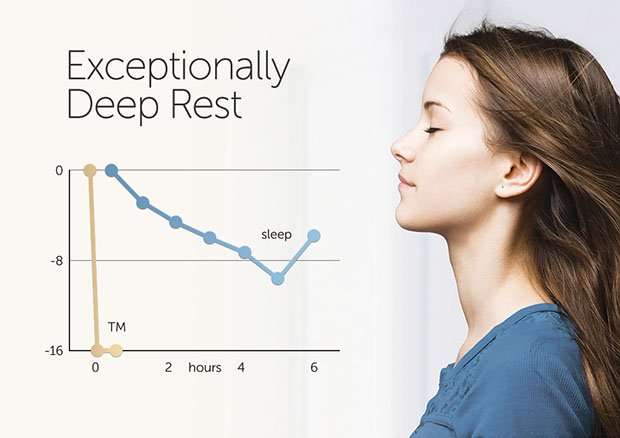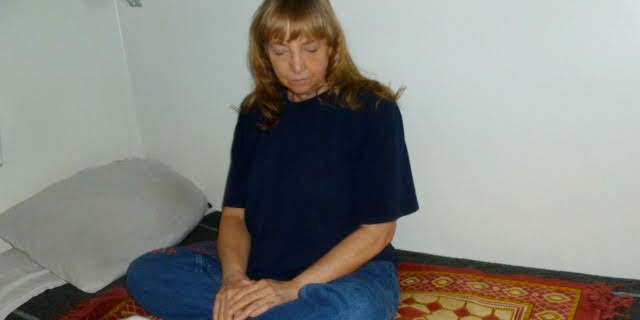Women are the fastest growing segment among the incarcerated in the United States. Study after study confirms that women’s path to prison mostly begins with experiencing severe trauma in the form of physical or sexual abuse.
When women go through such extreme forms of stress and lack access to services that could help them deal with the consequences, they start making poor lifestyle choices and suffer from psychological and physical comorbidities.
The desperate attempts to self-medicate often lead to drug abuse which directly (sentencing for drug possession) or indirectly (sentencing for crimes committed to support the drug habit) constitutes the leading reason for convictions among women prisoners.
When the trauma that led these women to imprisonment remains unresolved, the risk for recidivism also remains high.
That is why the new pilot-study on the effect of Transcendental Meditation practice on reducing symptoms of trauma in female prisoners published in The Permanente Journal is both timely and significant.
The positive outcomes of the pilot-study
Encouraged by the previous randomized controlled trial which demonstrated that Transcendental Meditation was able to relive the suffering of male prisoners with high levels of trauma symptoms, Dr. Sanford Nidich, director of the Center for Social and Emotional Health at Maharishi University of Management, set out to test whether TM practice is also effective for helping female inmates.

The study was conducted at Coffee Creek Correctional Facility in Wilsonville, Oregon with 22 inmates. The participants were randomly assigned to either the TM group or the wait-list control group. The TM group practiced the simple meditation technique for 20 minutes twice a day and could also attend 30-40 minute group sessions twice a week.
After four months the women in the TM group showed a significant reduction in total trauma symptoms such as the shock of disturbing memories, thoughts, and dreams, of repeatedly reliving trauma and physical reactions when being reminded of the trauma experience.
The women who practice Transcendental Meditation also reported that the meditation reduced the trouble they had falling and staying asleep and eased feelings of jumpiness or being easily startled.
“TM has been repeatedly shown to transform the lives of inmates and contribute to a greater sense of freedom, optimism and an overall improved quality of life,” Dr. Nidich commented on the results to Seeker.
Sense of peace and peaceful sleep
Besides the significant reduction in trauma symptoms measured using the Post-Traumatic Stress Disorder Checklist-Civilian (PCL-C) the treatment’s positive effect is further illustrated by the participants’ testimonials.
“It has been difficult to find peace and happiness in such an environment (prison)…. ,” one subject said. “Meditating twice a day has helped lessen my stress levels, allowed me to connect to and center myself at deeper levels, and to retreat, reflect, and problem solve…. Meditating helps facilitate my mental clarity, while at the same time calming me. TM has not only helped me mentally, my physical health has also improved. My blood pressure has gone down and my sleep, though I have insomnia, is deeper and more relaxed. I feel more energized.”
Another inmate described her experience of finding significant relief for the post-traumatic stress disorder (PTSD) she had been struggling with.
“Before I learned TM I was waking up several times a week with night terrors — literally screaming. I would only sleep a few hours per night because I was so frightened of my dreams. I had horrible flashbacks, nightmares, and severe PTSD. Almost immediately I saw the beneficial effects of TM…. I am able to fully focus throughout the day and have an inner peace and understanding…”
Blaze Compton, the Transcendental Meditation instructor involved in the study recalled that he periodically witnessed the women with “tears in their eyes and a contented smile” during the meditation.

Some of the women were able to reduce the intake or even completely stop taking depression medications. One female prisoner reported she experienced less pain from her chronic arthritis and join deterioration.
“I feel so open and have gained such a deep sense of surrender to my life and the feelings surrounding my incarceration. I no longer feel imprisoned. I now feel my freedom from the inside of me. My relationships have blossomed and grown so much since I began using TM,” another woman reported.
“I have been blinded by rage for the last four years almost nightly, until now,” one inmate said. “I am able to feel a real sense of peace now and happiness — even in prison.”
The study was funded by the David Lynch Foundation.
Academic reference
Nidich S, Seng A, Compton B, O’Connor T, Salerno JW, Nidich R. “Transcendental Meditation and reduced trauma symptoms in female inmates: A randomized controlled study.” Permanente Journal 2017; 21:16-008
















